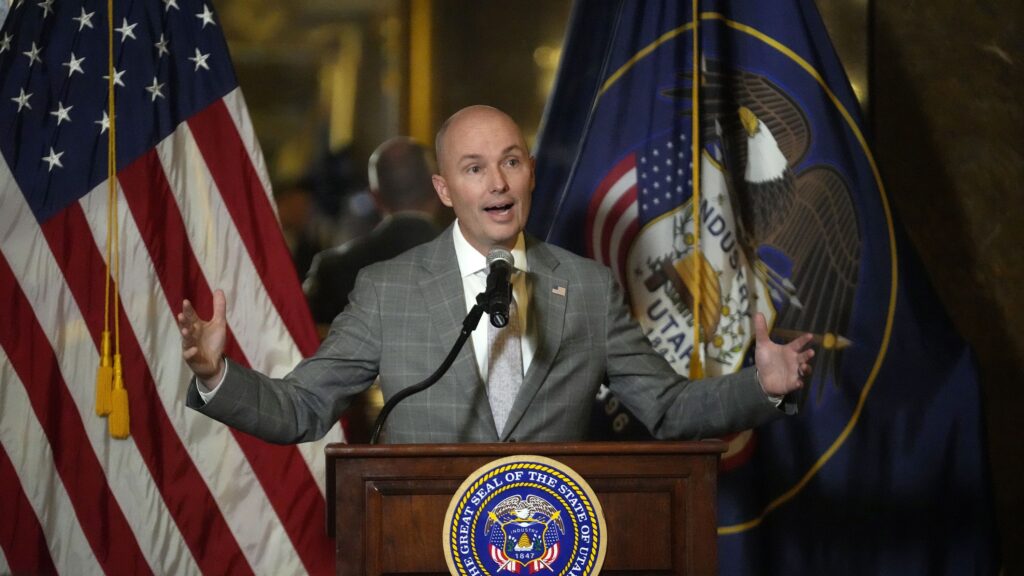Two cheers for the debt-limit deal | SLOAN


It came as perhaps something of a relief, if not much of a surprise, that Speaker Kevin McCarthy and the White House arrived at a debt ceiling deal last weekend. On the balance, the GOP did reasonably well on the negotiations this time. The fact that both the hard right and the progressives think the deal signals the commencement of the end of the world suggests it’s probably not.
A couple of points for background deserve mention. First, we can all agree that, whatever Donald Trump says, defaulting on our national debt payments is not a good thing. Right? And, per the 14th Amendment, doing so would be illegal. Second, breaching the debt limit does not automatically translate to default – unless the president and the Treasury choose to do so. It would mean a considerable amount of money would have to be diverted from other things to service that debt. To a Friedman-Thatcher-Reagan small-government conservative that looks like a pretty good deal on paper (and indeed, if we were starting from scratch, would be a pretty decent formula for good governance in general). But in reality, a lot of those “other things” are either politically popular – National Parks, veteran’s benefits and farm subsidies, for instance – or practical necessities of government, such as defense, ports, the air traffic control system and so forth.
Ergo, busting through the debt ceiling would not (necessarily) mean financial apocalypse, but neither would it be a benignly harmless hiccup in the daily workings of the nation.
Next, it needs to be understood what the conversation was about. Seventy-five percent of the budget was taken off the negotiating table before negotiations started – entitlements (Social Security, Medicare, Medicaid) make up a little more than 50% of the federal budget. Add in defense and veterans benefits, which Republicans (rightfully) didn’t want to make cuts to, and you are only negotiating over about 25% of the overall federal budget. So as far as debt reduction goes, it wasn’t really a serious discussion to begin with.
Stay up to speed: Sign-up for daily opinion in your inbox Monday-Friday
So accepting that this is not, and was never going to be, a transformative event in the history of the Republic and the idea of self-government, what is in the deal?
In exchange for suspending the debt limit for two years, non-defense discretionary spending will be capped at the current level of $704 billion for FY 2024, and increase by 1% in FY 2025. Taking into account the inflation rate of around 4.9% currently, this does amount to something of a real cut, even if the GOP did not get their (altogether reasonable) request to cap 2024 spending at levels not seen since way back in 2022.
And yes, for those of you making the argument, I get it, a reduction in the rate of increase in spending is not exactly tantamount to an actual reduction in spending. I’m with you, but consider this: as part of the arrangement, defense spending is allowed to increase about 3%, from $797 billion to $886 billion in 2024 and to $895 billion in 2025. But again, 3% is well below inflation so it is in reality a cut, in the one area of government that should not be cut. It’s all relative.
Aside from the non-defense discretionary spending caps, McCarthy eked out a couple other wins as well. Probably the most important are some changes made to social welfare spending, including strengthening work requirements for food stamps. Specifically, it raises from 49 to 54 the age cap on work requirements for able-bodied, childless adults to receive benefits under the Supplemental Nutrition Assistance Program.
It also cracks down on states that circumvent these requirements by reducing the percentage of exemptions that states can grant to 8% from the current 12%. This is not only good fiscal policy, but makes sense in a time when the economy is facing a worker shortage. There is also something to be said for promoting a culture of work and self-reliance that COVID and a general lackadaisical trend in society have nearly beaten down.
Permitting reform is also a part of the deal, if not the congressional oversight that the original GOP bill offered, then at least a long-overdue limit on how long environmental reviews can be allowed to delay a project.
The deal is, obviously, not perfect. In the longer view, considering no movement on entitlements and the cap on needed defense spending, it’s probably not even good enough. But it was, after all, the product of a negotiation, one moreover in which the Republicans really did not have a very strong hand. Republicans should take half a victory lap, and vote for the package knowing that they have a lot of work to do, work which starts with winning elections.
Kelly Sloan is a political and public affairs consultant and a recovering journalist based in Denver.













